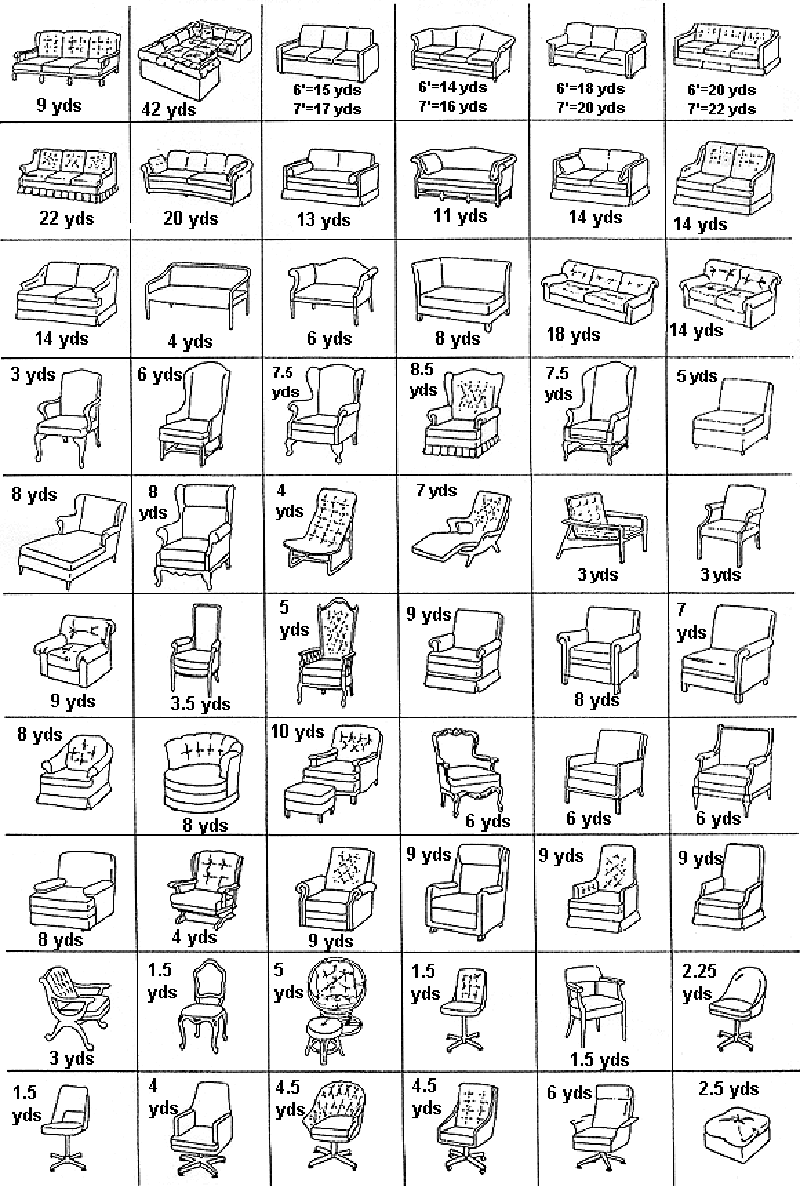Free Resource for DIY Enthusiasts : Chair Upholstery Yardage Calculation
Are you a DIY enthusiast looking to breathe new life into your furniture with upholstery projects? Calculating the yardage needed for chair upholstery can be a daunting task, but fear not! We've curated a comprehensive guide to simplify the process and empower you to tackle your projects with confidence. Say goodbye to guesswork and hello to precise measurements with our free resource.
Understanding Chair Upholstery Yardage Calculation: Before delving into the nitty-gritty of yardage calculation, let's explore the key factors that influence the amount of fabric required for your upholstery project:
-
Chair Type and Size:
- The size and design of your chair play a significant role in determining fabric yardage.
- Larger chairs with intricate designs may require more fabric compared to smaller, simpler designs.
-
Fabric Width:
- Upholstery fabric typically comes in standard widths, such as 54 or 60 inches.
- Understanding the width of your chosen fabric is crucial for accurate yardage calculation.
-
Pattern Repeat:
- If you opt for patterned fabric, consider the repeat size of the pattern.
- Pattern repeat affects how the fabric is laid out and influences the amount required.

Step-by-Step Guide to Calculating Yardage: Let's break down the process of calculating upholstery yardage into manageable steps:
-
Measure the Chair:
- Begin by measuring the width, depth, and height of your chair.
- Record these measurements accurately for reference during the calculation process.
-
Determine Fabric Width:
- Check the width of your chosen upholstery fabric, whether it's 54 or 60 inches.
- Note down the fabric width as it will be used in the calculation.
-
Calculate Surface Area:
- Divide the chair into sections, such as seat, backrest, arms, etc.
- Calculate the surface area of each section by multiplying its width by its height.
- Sum up the surface areas of all sections to get the total surface area to be covered.
-
Consider Fabric Repeat and Pattern Matching:
- For patterned fabric, account for pattern repeat when laying out the fabric.
- Plan for pattern matching to ensure a seamless look across the upholstery.
-
Add Extra for Seam Allowance and Pattern Matching:
- Allocate additional fabric for seam allowance, typically 1-2 inches on each side.
- Factor in extra fabric for pattern matching, especially for intricate patterns.
-
Final Yardage Calculation:
- Use the total surface area calculated earlier to determine the yardage needed.
- Divide the total surface area by the width of the fabric to obtain the yardage required.
- Round up to the nearest whole number to ensure sufficient fabric coverage.
Example Calculation: Let's illustrate the calculation process with an example:
- Total surface area of chair: 20 square feet
- Fabric width: 54 inches
- Calculation: (20 sq ft) / (54 inches) = 0.37 yards
- Round up to 1 yard to ensure adequate fabric coverage.
Conclusion: With our free resource on chair upholstery yardage calculation, you can embark on DIY upholstery projects with confidence and precision. Armed with the knowledge of key factors and a step-by-step guide, you'll bid farewell to uncertainty and embrace the joy of transforming your furniture. Whether you're a seasoned DIY enthusiast or a novice, our comprehensive guide ensures that you'll achieve professional-looking results every time. Say hello to beautifully upholstered chairs that reflect your style and creativity, all thanks to our free resource for DIY enthusiasts.
Here's a helpful video for your next DIY upholstery projects!
Dejar un comentario